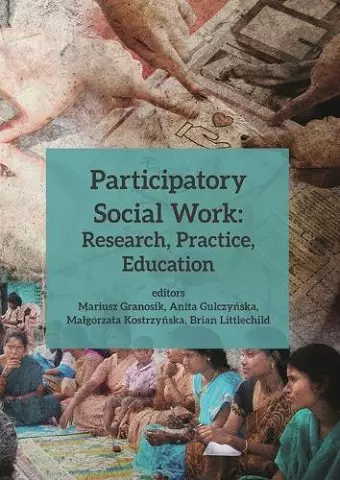Participatory Social Work – Research, Practice, Education
Brian Littlechild author Mariusz Granosik author Anita Gulczynska author Malgorzata Kostrzynska author
Format:Paperback
Publisher:Uniwersytet Jagiellonski, Wydawnictwo
Published:10th Sep '19
Currently unavailable, and unfortunately no date known when it will be back

As contemporary social work is challenged on the one hand by increasing and multidimensional social diversity and, on the other hand, an increasing emphasis on building a civil society based on activity, equality, and participation, the demand for research and debates relating to a participatory social work paradigm has been raised. Its rapid development is manifested not only by a theoretical shift or introduction of new research techniques and methods, but most of all by empowerment of the service users. It has given an impetus to the emergence of participatory research teams or, in the more radical viewpoints, to the gradual de-academization of both the empirical and theoretical aspects of social work. Eventually, expertise and commitment of participatory advisory bodies are reflected today in the sociopolitical decisions found in many countries.
For enthusiasts of participatory social work, recognition of service users’ perspective and civic activities in both academic discourse and daily practice perpetuate democratization of the social service system. They maintain uneven power distribution in both frameworks of elitist research and in practical models of social work. However, there is a growing body of opinion that participatory practices are only a more intelligent tool of contemporary societies’ governance. Whichever approach one takes, participatory social work raises anew the issues of credibility of knowledge, processes of its creation and use, the purpose of social work, its relationship to politics, and—above all—the role and competences of a social worker (co-)constructing social change in partnership with and not just for the service users.
This collective monograph considers thoroughly some of the above issues and many more. We focus not only on current state but most of all on raising controversial issues to encourage debate, reflection and discussion concerning participatory social work with a special attention given to participatory research. It offers new cross-national insight into participatory social work as well as discussion of its barriers and side effects. As a collective monograph prepared by an international team of researchers, it should help social workers, social pedagogues, politicians, sociologists, social activists, etc. from different geographic and sociocultural contexts to develop reflections on the implications and consequences of doing their research and practice in participatory manners.
The book is the result of a longer discussion about PAR in different contexts. This book focuses on methodological and practical experiences of PAR in a more radical perspective. But not only opportunities but although pitfalls and challenges are worked out. It has been possible to represent international authors (and international means in that book actually more than one or two nation states)! In general, the book is a very important and new perspective on PAR in international discourse. The book is innovative, because new perspectives on PAR were worked out. Both research-practical and methodological aspects are reflected. Particularly important are the arguments and experience with clients as co-researchers. Practical examples of good practice are shown here. This is particularly noteworthy, since there is nowadays less concrete experiences with peer research. Also new is the examination of questions about education and studies. -- Graßhoff Gunther, University of Hildesheim
ISBN: 9788323345992
Dimensions: 244mm x 170mm x 21mm
Weight: 612g
376 pages